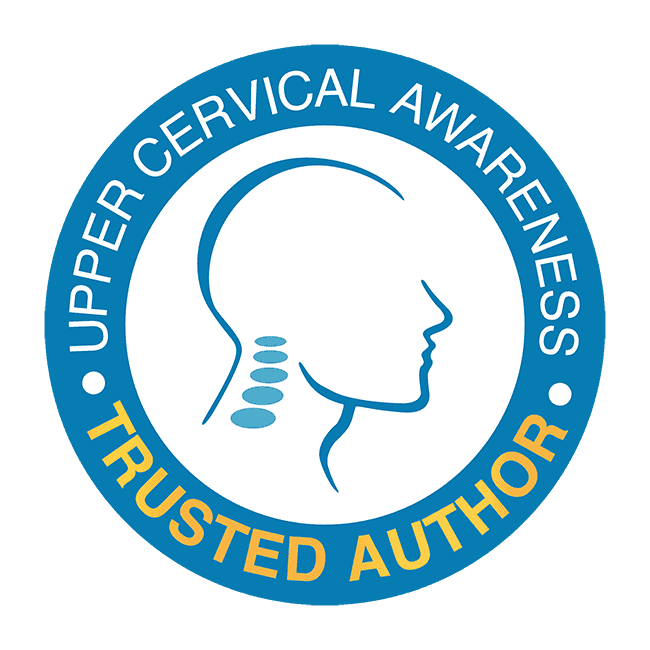
Reading Time: 8 minutes | Who the Blog is For: People experiencing morning vertigo, dizziness upon waking, and recurring balance issues in Bountiful, UT
5:30 AM. Your alarm goes off, and before you can even think about hitting snooze, it happens…
The room tilts. Your stomach lurches. That familiar wave of nausea washes over you as the ceiling seems to spin above your head. You grip the mattress and close your eyes tight, hoping it will pass quickly this time.
But you know the drill by now. You’ll have to lie still for another 10, maybe 20 minutes before you can even attempt to sit up. Your morning routine just got hijacked again.
If this sounds like your reality, you’re not alone. We see this pattern constantly in our Bountiful chiropractic practice—people who’ve learned to dread their alarm clock because they never know if they’ll wake up to a spinning world.
Here’s what we want you to know: morning vertigo isn’t something you have to accept as part of your daily life. And the key to unlocking vertigo relief in Bountiful UT might not be where most doctors are looking.
Key Takeaways: How to Unlock Morning Vertigo Relief in Bountiful UT
- Morning vertigo often stems from overnight neck positioning that affects upper cervical alignment and brainstem function
- Traditional treatments typically address symptoms rather than the structural causes of recurring vertigo episodes
- The atlas and axis bones in your upper neck directly influence communication between your brain and inner ear balance systems
- Our Bountiful chiropractic doctor, Dr. Grover provides gentle, precise corrections that can restore proper neurological function
- Recovery is often progressive—improvements build over time rather than happening instantly
- Addressing upper cervical alignment can improve related symptoms like sleep quality, headaches, and concentration alongside vertigo relief
Why Your Mornings Have Become a Nightmare
Let’s talk about what’s actually happening when you wake up dizzy. Most people assume it’s just “one of those things” or maybe something wrong with their inner ear. But there’s often a more specific reason why your vertigo is worst in the morning.
Think about how you sleep. You spend 6-8 hours in the same position, often with your neck twisted or bent in ways that would make you uncomfortable if you were awake. Your pillow might be too high, too flat, or positioned wrong. Maybe you sleep on your stomach with your head turned to one side all night.
All of this puts pressure on the delicate bones at the top of your spine—your atlas and axis. These bones sit right next to your brainstem and inner ear systems. When they’re compressed or slightly misaligned from hours of poor positioning, it affects the signals between your brain and your balance centers.
Then you wake up and try to change positions quickly, and boom—the room starts spinning.
There’s another factor many people don’t consider: those tiny crystals in your inner ear that help you maintain balance. When your neck has been in a compromised position all night, it can affect how these crystals settle. Suddenly sitting up or turning your head can send them tumbling around like dice in a cup.
We often tell patients: your neck and your inner ear are more connected than you might think. When one isn’t working properly, the other suffers too.
Living with Morning Vertigo in Bountiful: You’re Not Imagining the Struggle
Here in Bountiful, we understand that morning vertigo isn’t just inconvenient—it’s life-changing. Maybe you’ve had to call in sick to work because you couldn’t safely drive. Maybe you’ve stopped making morning plans with friends because you never know how you’ll feel when you wake up.
The worst part? Most people don’t understand what you’re going through. They think vertigo is just feeling “a little dizzy.” They don’t realize you’re dealing with intense nausea, fear of falling, and the complete loss of control that comes when your world literally turns upside down.
You’ve probably tried the usual recommendations: sleeping with your head elevated, moving slowly in the morning, staying hydrated. Maybe you’ve done those head positioning exercises you found online, or tried various medications. Some days these things help a little. Other days, nothing seems to make a difference.
That’s because most approaches only address the symptoms, not the underlying cause of why your vertigo keeps coming back every morning.

Why Traditional Treatments Miss the Mark
Don’t get us wrong—we have tremendous respect for ENT doctors and neurologists. They do important work, especially when ruling out serious conditions. But here’s where the traditional approach often falls short with morning vertigo…
Most doctors look at your inner ear as if it exists in isolation. They treat the crystals, prescribe medications for the nausea, or recommend exercises to retrain your balance. All of these can provide temporary relief, but can sometimes miss the reason why your inner ear keeps getting disrupted in the first place.
As a Bountiful chiropractor, Dr. Grover looks at the bigger picture. Your inner ear doesn’t just float around in your head by itself—it’s connected to your nervous system, which runs through your spine, which starts with those crucial bones in your upper neck.
When your atlas and axis are even slightly out of alignment, it creates a cascade of problems that can trigger vertigo episodes, especially in the morning when you’ve been in compromised positions all night.
The Upper Cervical Connection: A Different Approach to Vertigo Relief
Here’s what we’ve learned after years of helping people find lasting vertigo relief in Bountiful: the answer often lies in the connection between your upper neck and your neurological function.
Your atlas (the top bone in your spine) doesn’t just hold your head up—it protects your brainstem, the command center that processes balance information from your inner ear. When this bone shifts even a few millimeters out of its proper position, it can interfere with the signals that keep you steady and balanced.
This is especially problematic in the morning because sleep positions often exaggerate these misalignments. You wake up with increased pressure on your brainstem and compromised communication between your brain and inner ear.
Our NUCCA approach focuses specifically on restoring proper alignment to these crucial upper cervical bones. NUCCA is incredibly gentle and precise—most patients are surprised by how subtle the correction feels.
What Vertigo Relief in Bountiful Actually Looks Like
We wish we could tell you that everyone wakes up vertigo-free after their first adjustment, but healing doesn’t work that way. What we can tell you is that we’ve seen remarkable improvements in people who’ve been struggling with morning vertigo for months or even years.
Some people notice changes within the first week. They wake up and realize they can sit up normally, or that the room isn’t spinning when they turn their head. Others need several weeks of care before they see significant improvement.
What’s encouraging is that the improvements tend to be progressive. Instead of waking up with severe vertigo every day, maybe it only happens a few times a week. Then maybe just on mornings after you’ve slept poorly. Eventually, many of our patients find they can wake up and get out of bed normally most mornings—something they’d almost forgotten was possible.
We also see improvements in related symptoms that people often don’t connect to their vertigo: better sleep quality, fewer headaches, less neck stiffness, and improved concentration throughout the day.
Bountiful Chiropractic Care: Beyond Just Treating Symptoms
What sets our approach apart in the Bountiful chiropractic community is that we don’t treat your vertigo symptoms—instead we address the underlying structural problems that keep causing them to return.
We start with a detailed consultation about your symptoms. When does your vertigo happen? What positions trigger it? How has it affected your daily life? Then we take precise X-rays to see exactly how your upper cervical spine is aligned.
If we find atlas misalignments that could be contributing to your morning vertigo, we’ll explain exactly what we see and how we think we can help. We also provide specific guidance about sleeping positions, pillow support, and morning routines that can help your body maintain the corrections we make.
The goal isn’t just to stop your morning vertigo episodes—it’s to help your nervous system function properly so your natural balance mechanisms can work the way they’re supposed to.
Taking Control of Your Mornings Again
Here’s what we want every person dealing with morning vertigo to understand: you don’t have to start every day wondering if you’ll be able to function normally. You don’t have to plan your life around the possibility of waking up dizzy and nauseous.
Morning vertigo often has a mechanical cause—something that can be identified and addressed with the right approach. When the bones in your upper neck are properly aligned, when your brainstem can function without interference, when the communication between your brain and inner ear is clear, your mornings can become normal again.
We’ve worked with people who haven’t had a vertigo-free morning in months. Professionals who were considering disability leave because they couldn’t reliably get to work. Retirees who stopped making breakfast plans with their grandchildren because they never knew how they’d feel when they woke up.
And we’ve helped many of these same types of people reclaim their mornings and get back to the lives they thought they’d lost.

Your Path to Vertigo Relief in Bountiful
If morning vertigo has been controlling your life, and traditional treatments haven’t given you the lasting relief you’re looking for, it might be time to explore whether your upper neck is part of the problem.
We don’t promise miraculous overnight cures, and we’re honest about our limitations. But for the right patient—someone whose vertigo has a structural component that other treatments have missed—addressing upper cervical alignment can be genuinely life-changing.
You deserve to wake up feeling steady and confident, ready to start your day instead of dreading it. You deserve mornings that don’t begin with gripping your mattress and waiting for the world to stop spinning.
Your vertigo doesn’t have to define your mornings anymore. Sometimes the solution is simply looking at the problem from a different perspective—literally, from the perspective of your neck’s alignment and its effect on your entire nervous system.
If you’re tired of starting every day with uncertainty and fear, we’re here to help you explore a different approach. Your steady, vertigo-free mornings might be closer than you think.
Ready to explore lasting vertigo relief in Bountiful? Contact Dr. Grover at Bountiful Spinal Care to discover how gentle NUCCA upper cervical care might be the key to reclaiming your mornings.
FAQs on How a Bountiful Chiropractor Help with Vertigo Episodes
How is morning vertigo different from other types of dizziness?
Morning vertigo typically involves a distinct spinning sensation that occurs specifically when waking up or changing positions after sleep. Unlike general dizziness or lightheadedness, morning vertigo often involves nausea and can be triggered by specific head movements. The timing suggests a connection to sleep positioning and neck alignment that affects inner ear function overnight.
Why would I see a Bountiful chiropractor for vertigo instead of an ENT specialist?
Both approaches have value, and we often work alongside ENT specialists when appropriate. The difference is that ENT doctors typically focus on inner ear treatments, while we address the structural factors in your upper neck that may be triggering your vertigo episodes. Many patients find the most success with a comprehensive approach that considers both inner ear function and spinal alignment.
Is NUCCA treatment safe for someone with severe morning vertigo?
NUCCA is so subtle that most patients are surprised by how light the touch is. We also take detailed X-rays first to understand your specific anatomy and ensure the safest, most precise approach for your individual case.
How long does it typically take to see improvement in morning vertigo with NUCCA care?
Recovery timelines vary significantly from person to person. Some people notice improvements within days, while others may need several weeks of care. Factors like how long you’ve had the problem, your overall health, and how well your body holds the upper cervical corrections all play a role. We’ll give you a better sense of expectations after your initial examination.
Can morning vertigo come back after NUCCA treatment?
While many patients experience long-lasting relief, vertigo can return if the underlying structural issues aren’t fully resolved or if new injuries occur. This is why we provide guidance on sleep positioning, ergonomics, and lifestyle factors that support your recovery. Some patients benefit from periodic maintenance care to keep their upper cervical spine properly aligned.
To schedule a consultation with Dr. Grover, call our West Bountiful office at 801-335-7288. You can also click the button below. If you are outside of the local area, you can find an Upper Cervical Doctor near you at www.uppercervicalawareness.com.
If you are outside of the local area, you can find an Upper Cervical Doctor near you at www.uppercervicalawareness.com.





